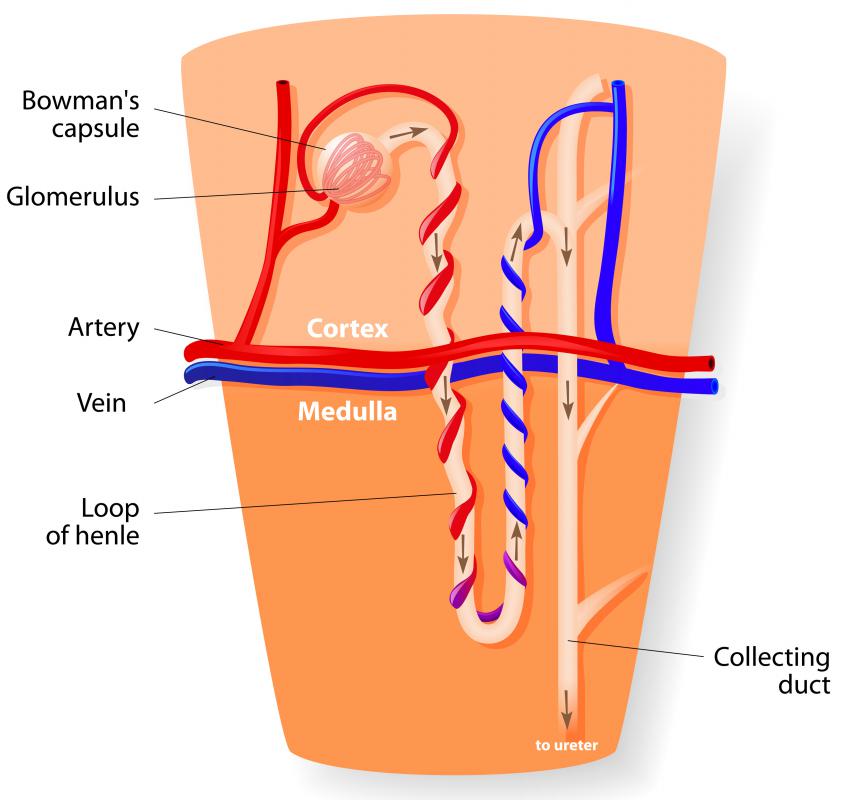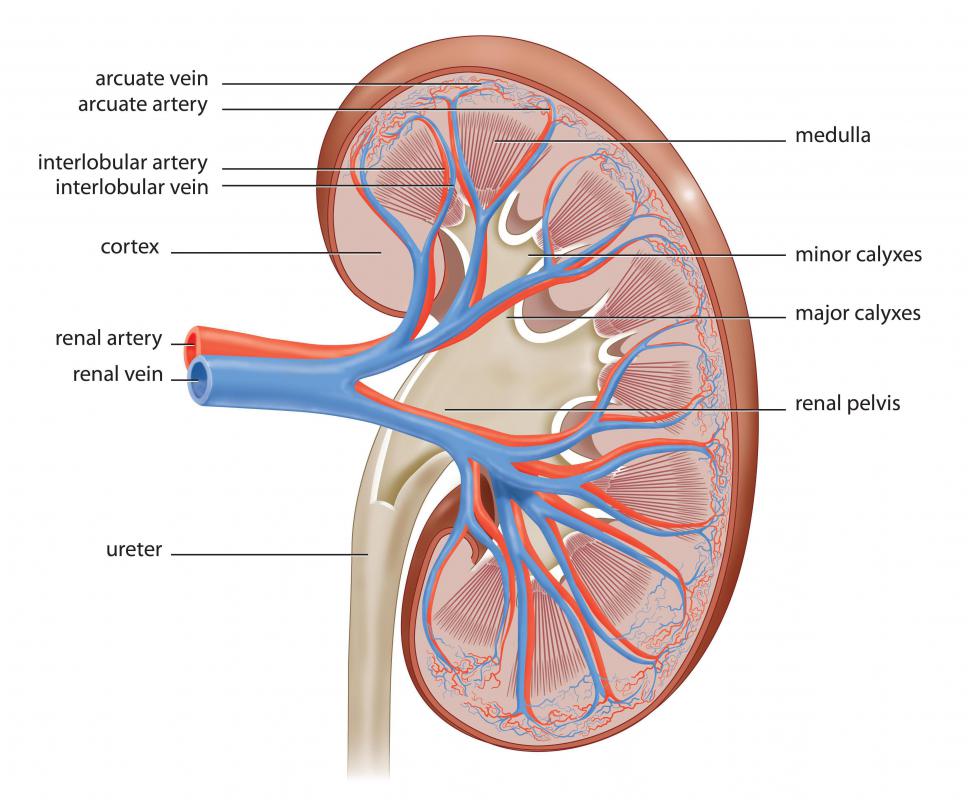At WiseGEEK, we're committed to delivering accurate, trustworthy information. Our expert-authored content is rigorously fact-checked and sourced from credible authorities. Discover how we uphold the highest standards in providing you with reliable knowledge.
What is Interstitial Nephritis?
Interstitial nephritis, also called tubulo-interstitial nephritis, is a kidney disease. It affects the interstitial fluid of the kidneys that surrounds the tubules of the organ. It causes inflammation of the tubules and can severely impair function of the kidneys.
The function of the kidneys is to process blood, sifting out waste and excess water, turning them into urine. Tiny components inside the kidneys called nephrons are primarily responsible for this process. There are millions of these nephrons in each kidney. Inside every nephron are extremely small tubes called tubules. These collect urine in the kidneys, acting like a filter. When the kidneys contract interstitial nephritis, these tubules become inflamed. When this happens the function is severely limited, resulting in impaired kidneys. When the kidneys can no long function properly, the body becomes flooded with wastes and toxins that should have been removed.

The most common symptom of interstitial nephritis is decreased urine output. As it progresses, worse symptoms can become prevalent. These symptoms can include a fever with nausea and vomiting, rash and swelling of the body, weight gain from water retention, blood in the urine, and a change in mental capability. Many times people suffering from a kidney disease will become confused or drowsy, as the toxins can cause exhaustion and fatigue.

Interstitial nephritis can be acute or chronic; either a short-term one-time occurrence or a long-lasting disorder that gradually gets worse over time. There are many different causes for the disease, and figuring out how the root of the cause is usually the first step to a full recovery. Reactions to certain medications can frequently cause nephritis either through an allergic reaction or from repeated use of medicine such as aspirin or anti-inflammatory medications. Switching or stopping the use of the drugs in question will usually restore kidney function. Other times, the disease may be caused by an infection or as a symptom from another disease like lupus. It can also be a side-effect of transplant rejection.

While most cases of interstitial nephritis are acute, one-time occurrence that cause no long-lasting problems, chronic cases can debilitating disorders that eventually become life threatening. It can eventually lead to chronic kidney failure and end stage kidney disease where the kidneys essentially stop functioning completely. In these cases dialysis and even a full kidney transplant may be the only way successful form of treatment.
AS FEATURED ON:
AS FEATURED ON:













Discuss this Article
Post your comments